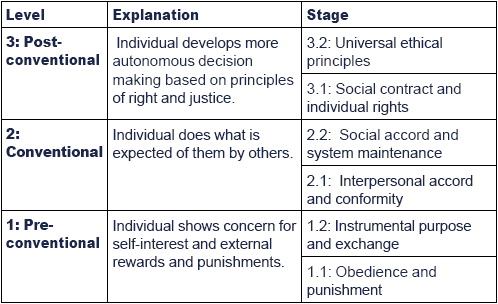Ethical theories
Ethics is the science of morals in human conduct - i.e. determining what is the right or wrong course of action. This page looks in detail at different theories of ethics.
Different approaches to ethics
Absolutism and relativism
Relativism and absolutism both refer to the ethical and moral belief systems in society.

Dogmatic versus pragmatic approach
The idea of absolutism and relativism can be illustrated with two similar concepts.
- A dogmatic approach takes the view that there is one truth and this truth is to be imposed in all situations.
- The word is taken from the Greek dogma - or given truth.
- This viewpoint corresponds to absolutism.
- A pragmatic approach attempts to find the best route through a specific moral situation without reference to any absolutist belief.
- The approach is similar to relativism in attempting to find a solution based on the given belief system of the individuals involved
Deontological and teleological approaches to ethics
Deontological approach
- This is a non-consequentialist theory.
- The motivation or principle is important.
- An action can only be deemed right or wrong when the morals for taking that action are known.
There are three key maxims, or tests, for any action: an action is morally 'right' if it satisfies all three.
- Consistency: Act only according to that maxim by which you can, at the same time, desire that it should become a universal law.
- The action can only be right it everyone can follow the same underlying principle.
- Human dignity: Act so that you treat humanity, whether in your own person or in that of another, always as an end and never as a means only.
- Universality: Act only so that through its maxims could regard itself at the same time as universally lawgiving.
- Would an action be viewed by others as moral or suitable ?
Teleological approach
This is a consequentialist theory.
- Whether a decision is right or wrong depends on the consequences or outcomes of that decision.
- As long as the outcome is right, then the action itself is irrelevant.
There are two perspectives from which the outcome can be viewed:
Egoism
- Sometimes thought of as the view 'what is best for me?'. An action is morally right if the decision maker freely decides in order to pursue either their short-term desires or longer-term interests.
- The egoist will also do what appears to be 'right' in society because it makes them feel better.
- Egoism does not always work because actions on all members of society cannot be determined.
Utilitarianism
- Sometimes taught as the idea of 'what is best for the greatest number?'. An action is morally right if it results in the greatest amount of good for the greatest number of people affected by that action.
- It applies to society as a whole and not the individual.
- It is valuable in business decisions because it introduces the concept of 'utility' - or the economic value of actions.
- It is highly subjective.
Kohlberg's cognitive moral development (CMD) theory
- Kohlberg developed a cognitive moral development (CMD) theory to explain the reasoning process behind moral judgements.
- This theory is viewing ethical decisions from an individual's perspective.
Kohlberg's levels of human moral development

- The three main levels are shown above.
- Each level is subdivided into two stages - giving six stages in total.
- Individuals tend to move from Level 1 to Level 3 as they get older.
- Movement is decided by how a decision is made, not what the decision is about.
- Research indicates that most people, including business managers, tend to reason on Level 2
|
Created at 9/27/2012 4:37 PM by System Account
(GMT) Greenwich Mean Time : Dublin, Edinburgh, Lisbon, London
|
Last modified at 9/27/2013 3:51 PM by System Account
(GMT) Greenwich Mean Time : Dublin, Edinburgh, Lisbon, London
|
|
|
|
 |
Rating
:
|
 Ratings & Comments
(Click the stars to rate the page) Ratings & Comments
(Click the stars to rate the page)
|
 |
Tags:
|
|